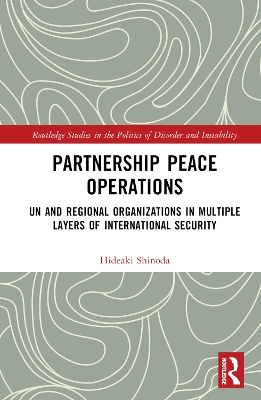Marginalised in Genocide Narratives
 -10%
portes grátis
-10%
portes grátis
Marginalised in Genocide Narratives
Dona, Giorgia
Taylor & Francis Ltd
06/2019
172
Dura
Inglês
9781138839908
15 a 20 dias
408
ACKNOWLEDGEMENTS
LIST OF ABBREVIATIONS
Chapter 1 Introduction: narrating genocide and the genocide narrative
Introduction
Narrating genocides: victims, perpetrators and the marginalised others
The formation of the genocide master-narrative
The constellation of genocide narratives
The Rwandan genocide and Rwanda Studies
Situating narratives methodologically
Conclusion
Chapter 2 The formation of the foundational genocide master-narrative
Introduction
The formation of the master-narrative of the Genocide against the Tutsi
The genocide as the foundational master-narrative
The counter master-narrative of war
The marginalised voices
Conclusion
Chapter 3 Reframing culpability, shame and guilt: non-perpetrator members of the perpetrator group
Introduction
Naming culpability, shame and guilt: non-perpetrator members of the perpetrator group
Revisiting moral culpability through ordinary morality
The narrative of national unity and reconciliation: everyday relations and values
Conclusion
Chapter 4 Revisiting the figure of the heroic rescuer: communal rescue, care and resistance
Introduction
Naming the public figure of the rescuer: individual, exceptional, heroic
From exceptional heroes to communities of care
The communal rescue narrative: care and resistance
The ambivalent legacy of rescuing
Revisiting the figure of the heroic saviour
Conclusion
Chapter 5 Families of mixed ethnic backgrounds: the intimate burden of those caught in-between the politics of ethnic identity
Introduction
The erasure of the 'mixed' constituent in public narratives
Rethinking the proxy categories of rescape, genocidaire and orphelin du genocide
Caught in-between: narrating the intimate burden of 'mixed' belonging
The narrative legacy of the genocide
Articulating and reclaiming the 'mixed'
Conclusion
Chapter 6 Marginalisation and survival of the other minority group
Introduction
Naming the outside onlooker: the Twa
Questioning the onlooker narrative: the insider and the struggle for survival
Post-genocide narratives: from autochthones to historically marginalised
Decentering the genocide narrative: national progress, vulnerability and material survival
Conclusion
Chapter 7 Civilian returnees: intra-ethnic differences and continuities with the past and exile
Introduction
The Hamitic narrative: histories of mobility and belonging
The hegemony of the RPF-led national narrative and the diverse stories of the civilian returnees
Revisiting the narrative of the 'new' Rwanda: continuities with the past and exile
Conclusion
Chapter 8 The revised constellation of genocide narratives and the untold social history of genocides
Introduction
The marginalised voices in the revised constellation of genocide narratives
Narrative engagement: agency and dialogical strategies
Rewriting the social history of the genocide that took place in Rwanda
Expanding and applying the constellation of genocide narratives
Conclusion
Glossary
References
ACKNOWLEDGEMENTS
LIST OF ABBREVIATIONS
Chapter 1 Introduction: narrating genocide and the genocide narrative
Introduction
Narrating genocides: victims, perpetrators and the marginalised others
The formation of the genocide master-narrative
The constellation of genocide narratives
The Rwandan genocide and Rwanda Studies
Situating narratives methodologically
Conclusion
Chapter 2 The formation of the foundational genocide master-narrative
Introduction
The formation of the master-narrative of the Genocide against the Tutsi
The genocide as the foundational master-narrative
The counter master-narrative of war
The marginalised voices
Conclusion
Chapter 3 Reframing culpability, shame and guilt: non-perpetrator members of the perpetrator group
Introduction
Naming culpability, shame and guilt: non-perpetrator members of the perpetrator group
Revisiting moral culpability through ordinary morality
The narrative of national unity and reconciliation: everyday relations and values
Conclusion
Chapter 4 Revisiting the figure of the heroic rescuer: communal rescue, care and resistance
Introduction
Naming the public figure of the rescuer: individual, exceptional, heroic
From exceptional heroes to communities of care
The communal rescue narrative: care and resistance
The ambivalent legacy of rescuing
Revisiting the figure of the heroic saviour
Conclusion
Chapter 5 Families of mixed ethnic backgrounds: the intimate burden of those caught in-between the politics of ethnic identity
Introduction
The erasure of the 'mixed' constituent in public narratives
Rethinking the proxy categories of rescape, genocidaire and orphelin du genocide
Caught in-between: narrating the intimate burden of 'mixed' belonging
The narrative legacy of the genocide
Articulating and reclaiming the 'mixed'
Conclusion
Chapter 6 Marginalisation and survival of the other minority group
Introduction
Naming the outside onlooker: the Twa
Questioning the onlooker narrative: the insider and the struggle for survival
Post-genocide narratives: from autochthones to historically marginalised
Decentering the genocide narrative: national progress, vulnerability and material survival
Conclusion
Chapter 7 Civilian returnees: intra-ethnic differences and continuities with the past and exile
Introduction
The Hamitic narrative: histories of mobility and belonging
The hegemony of the RPF-led national narrative and the diverse stories of the civilian returnees
Revisiting the narrative of the 'new' Rwanda: continuities with the past and exile
Conclusion
Chapter 8 The revised constellation of genocide narratives and the untold social history of genocides
Introduction
The marginalised voices in the revised constellation of genocide narratives
Narrative engagement: agency and dialogical strategies
Rewriting the social history of the genocide that took place in Rwanda
Expanding and applying the constellation of genocide narratives
Conclusion
Glossary
References
















